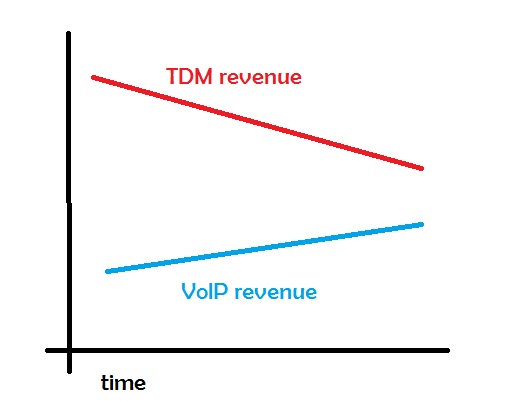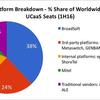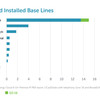Besides the stock price changing, Broadsoft is enhancing SIP trunking.
"BroadSoft, Inc. has announced the release of an enhanced SIP trunking solution, enabling service providers to add unified communications and mobile applications to their SIP trunking offering with speed and ease. With it, service providers can increase the value of their SIP trunks and improve their Average Revenue Per User (ARPU)." [UCSttrategies]
I wonder if they are enhancing SIP licensing as well. One of the big issues for Broadsoft based service providers is the licensing fees, especially the maintenance payments on unused licenses. For service providers with 25K licenses and only 12,500 seats, they are effectively paying a double fee for those active licenses. Hurts profitability.
With Hosted PBX revenue at roughly $500M (as estimated by Insight Research Corp.), this market has not grown like so many analysts had predicted. As Razorsight writes, "That is far less revenue than many had been predicting would be the case by now. "The hosted PBX/VoIP service providers had only garnered less than 4% of the small business lines (seats) as of year end 2010," Insight Research says... such forecasts suggest the hosted IP telephony market will not be bigger than the original "Centrex" business."

VoIP revenue is not anywhere near TDM revenue or wireless revenue. VoIP is mostly sold on price - SIP Trunking, consumer voice (Vonage, Magicjack), and even Hosted PBX. So the revenue is always going to be less than TDM and certainly less than cellular (even though that is VoIP too). That means margins are going to be less than in TDM.
There is an interesting prediction by The INSIGHT Research Corporation that states, "Over the next five years, all of the major US telcos and cable TV MSOs are expected to lose small business customers to a new crop of hosted service providers that will offer PBX-like voice services at lower reccurring costs and with minimal site equipment expense." This means that POTS lines and SIP circuits (digital voice lines that MSO's deliver over cable) will be subject to replacement by not just cell phones but some type of Hosted VoIP service. If you listen to some, the softphone on devices like the iPad will replace not just phone lines but handsets as well. To what degree? Maybe INSIGHT says in the study. i don't know. But this will be very low margin revenue, because in triple play bundles, the voice service costs about $15.
So what is this blog post about? How much longer will Broadsoft based providers continue to pay the licensing tax fee? On top of that, since Broadsoft already boasts over 400 providers and Metasswitch has most of the rest, there won't be many more softswitches sold. That means that most (if not all) of Broadsoft's future revenue will need to come from licensing and maintenance. Being public, BSFT will eventually have to raise the costs of maintenance to service providers to continue to fund research, fixes, etc. (Factor in consolidation and going out of business sales and that means even less sales.) Broadsoft may be te next Nortel. It certainly looks like Coppercom.
When one of the biggest independent Hosted PBX providers, M5 Networks, moves off the Broadsoft owned platform (M6) to its own switch, that doesn't bode well for the future. Since there isn't a roadmap for M6 Skinny migration to BroadWorks (without a forklift and a lot of tears), what happens next?
It's a solid platform. It scales. It's the licensing and business model that are the hurdles.
Just something to think about.













